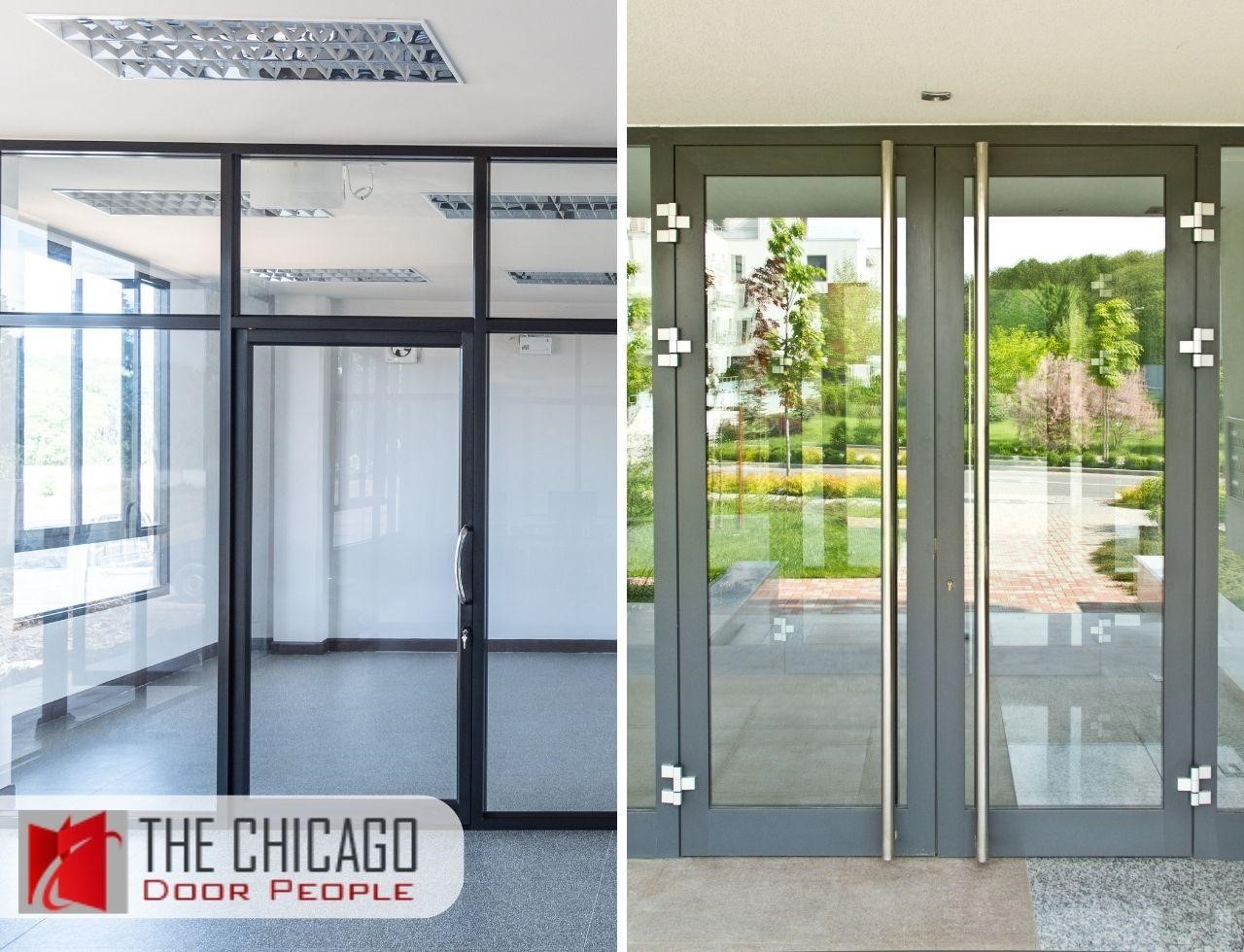Commercial doors play a vital role in establishing the functionality, security, and aesthetics of a building. When selecting doors for commercial spaces, understanding the differences between exterior and interior commercial doors is crucial.
In this comprehensive guide, we will explore the distinctions between these two types of commercial doors, their materials, and their unique characteristics and purposes.
Exterior Commercial Doors
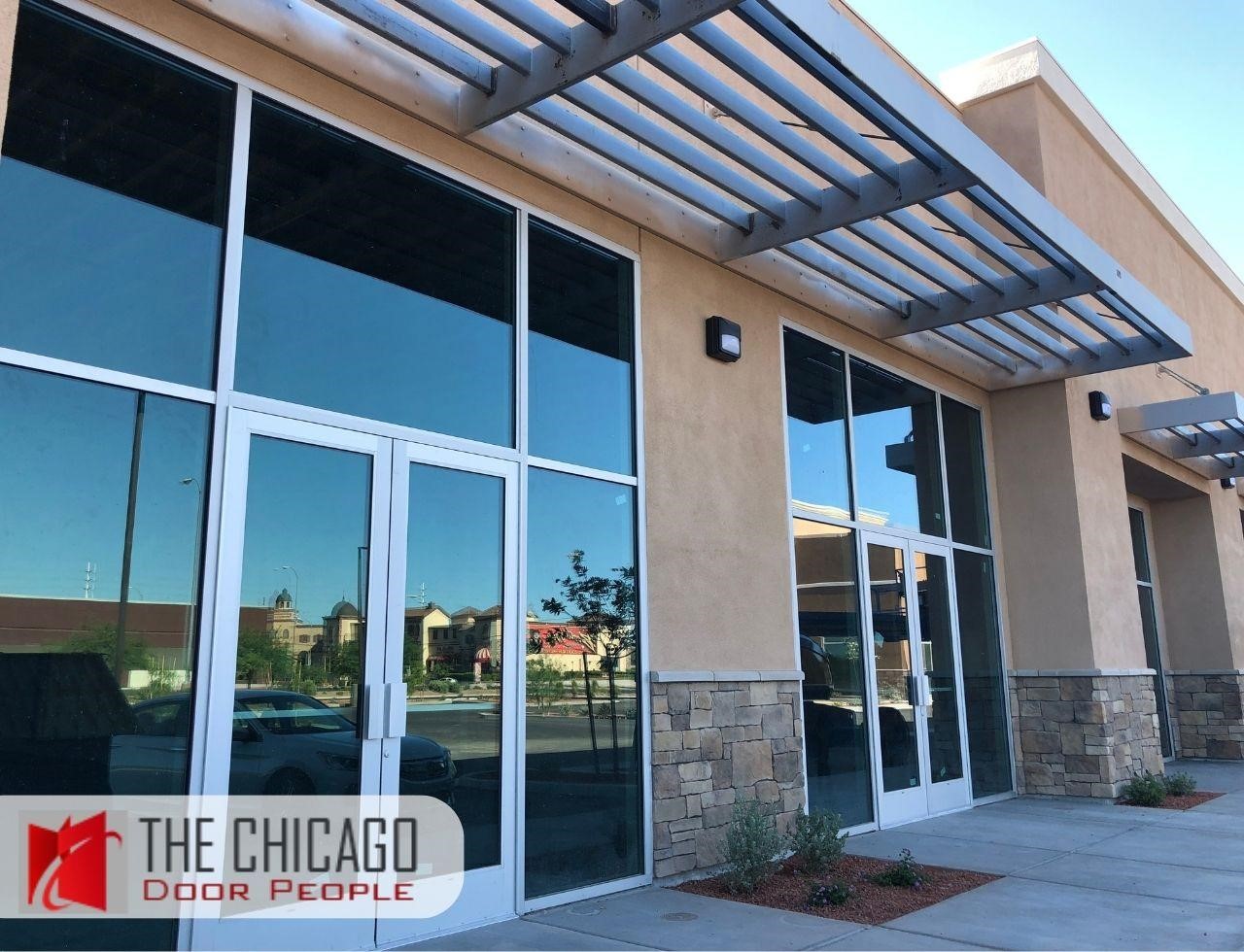
Unquestionably, exterior commercial doors are the first defense against external elements and unauthorized access. Here are some key features and considerations to keep in mind:
Security and Durability
To emphasize, exterior doors are designed to provide enhanced security and withstand harsh weather conditions. They are typically constructed with sturdy materials such as steel, fiberglass, or solid wood, making them more resistant to forced entry and offering better insulation.
Weather Resistance
Exterior doors are exposed to the elements, including rain, wind, and sunlight. To combat these challenges, they are equipped with weatherstripping, thresholds, and specialized finishes to prevent water infiltration and minimize heat loss.
Design and Aesthetics
Exterior doors are often the focal point of a building’s façade and contribute to its aesthetic appeal. They are available in various designs, finishes, and styles to complement the architecture and create a welcoming entrance for visitors.
Interior Commercial Doors
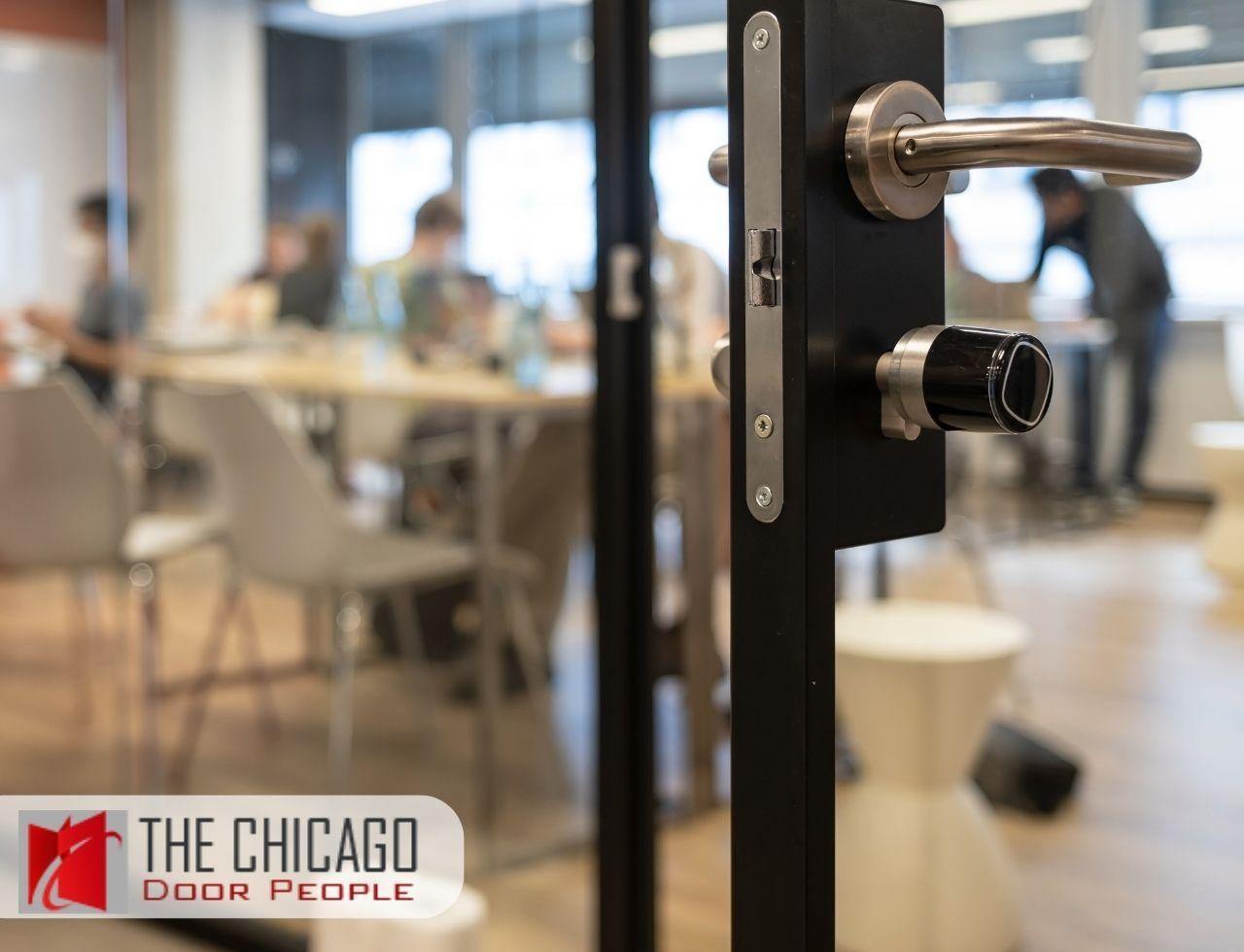
Interior commercial doors serve different purposes within a building, focusing more on functionality, privacy, and space division. Let’s explore their distinguishing features:
Privacy and Soundproofing
Mainly, interior doors are designed to provide privacy and minimize sound transmission between different building areas. They are typically lighter and can be made of materials like hollow-core wood, solid-core wood, or glass with acoustic properties.
Accessibility and Traffic Flow
To emphasize, interior doors facilitate the smooth flow of people and goods within a building. Depending on the space’s specific requirements, they can include swinging, sliding, or folding doors. Importantly, accessibility considerations, such as wider openings and handles compliant with accessibility guidelines, are crucial for interior commercial doors.
Design and Functionality
While aesthetics are essential for interior doors, they focus on functionality and space optimization. They come in various styles, finishes, and configurations to accommodate different needs, such as fire-rated doors, glass partition doors, or doors with integrated security features.
Exterior and Interior Commercial Doors Materials
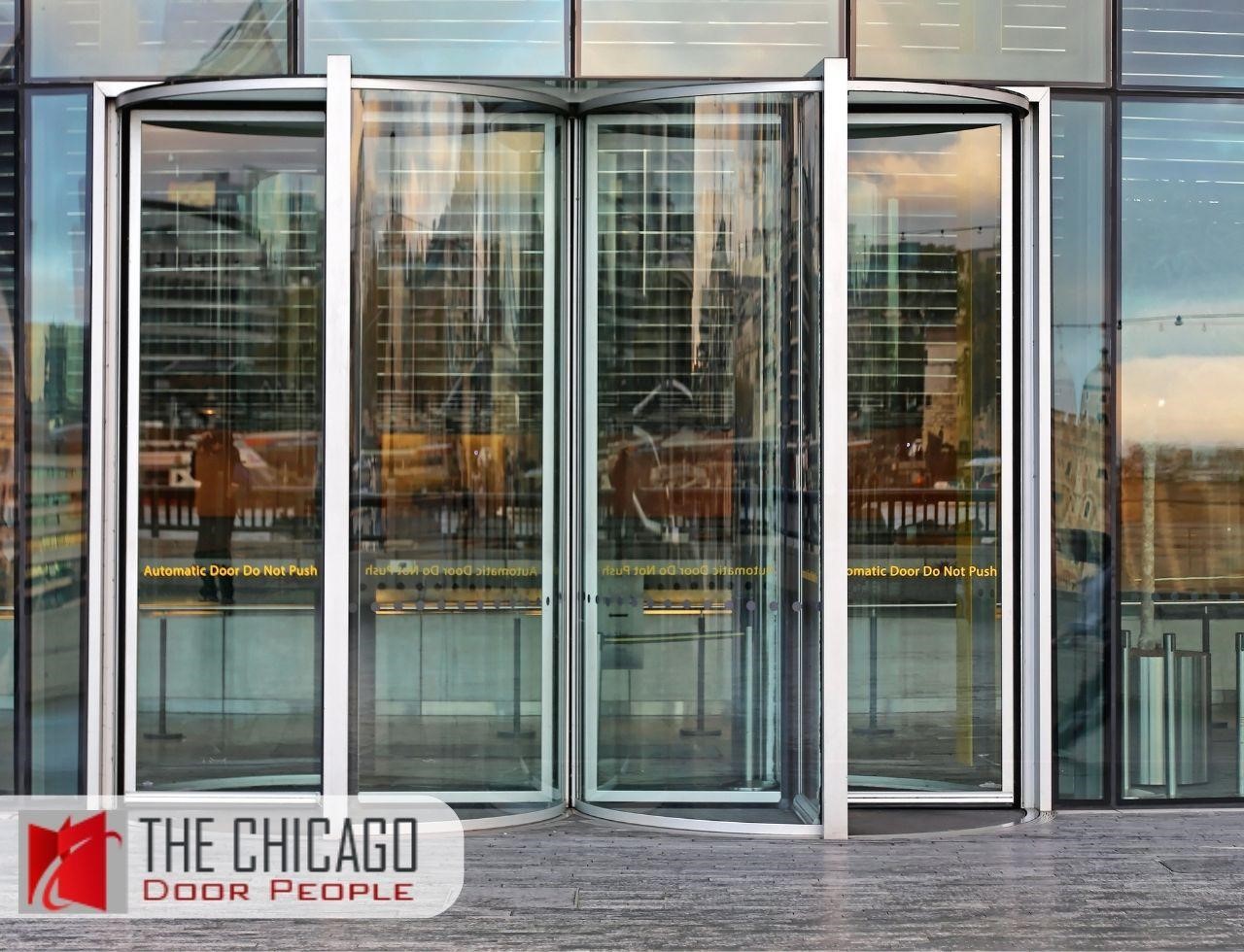
Exterior and interior commercial doors are essential components of any commercial facility. They not only provide security but also add to the aesthetics of the building. For this reason, it is crucial to choose the right materials for your commercial doors.
Several types of materials are available in the market, each with strengths and weaknesses.
Hollow Metal Doors
Hollow metal doors are famous for commercial facilities because of their durability. They are made of steel and have a hollow core, which makes them lightweight and easy to install. The advantages of hollow metal doors include the following:
- Indeed, they are fire-resistant and can protect your property.
- They are sturdy and can withstand harsh weather conditions.
- They are easy to maintain and repair.
However, they also have some disadvantages, including:
- In fact, they can dent easily, which means they may require replacement sooner than other materials.
- They are not very energy-efficient, which may lead to higher costs of heating and cooling your facility.
- They can be noisy when opening and closing.
Fiberglass Doors
Fiberglass doors are another popular choice for commercial facilities. They are made of a composite material reinforced with fiberglass, making them sturdy and durable. The advantages of fiberglass doors include:
- They are energy-efficient and can help reduce your facility’s heating and cooling costs.
- They are resistant to scratches and dents, meaning they have a longer lifespan than other materials.
- They are easy to maintain and clean.
However, they also have some disadvantages, including:
- They are not fire-resistant, which may pose a risk to your property in case of a fire.
- They are not as sturdy as other materials, which means they may not be suitable in areas of high traffic.
- They can be expensive to install.
Wooden Doors
Wooden doors are a traditional choice for commercial facilities. They are made of natural materials, which gives them an attractive aesthetic appeal. The advantages of wooden doors include the following:
- They are energy-efficient and can help reduce your facility’s heating and cooling costs.
- They are attractive and can add to the aesthetics of your building.
- Wooden doors are versatile, as they can be customized to fit any design.
However, they also have some disadvantages, including:
- They require regular maintenance and may be prone to rotting and warping.
- Furthermore, they are not very durable and may require frequent replacement.
- They are not fire-resistant and may pose a risk to your property in case of a fire.
In detail, choosing the right materials for your commercial doors is essential to ensure the safety and aesthetics of your facilities. We have explored some popular materials, their advantages, and disadvantages. Ultimately, the choice of material will depend on your specific needs, budget, and preferences.
Have the Best Services For your Commercial Property
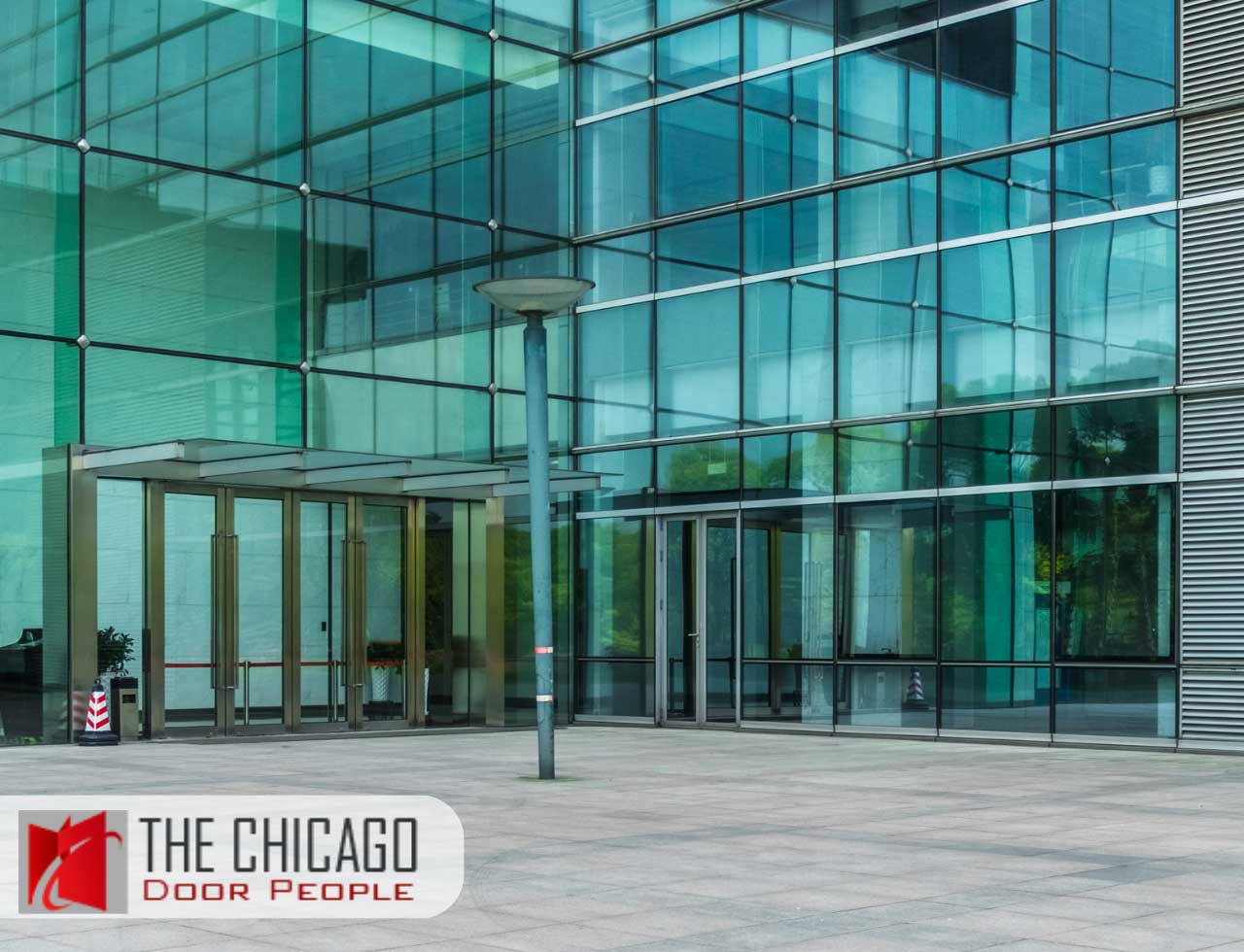
Understanding the distinction between exterior and interior commercial doors is essential when selecting the right doors for a commercial space. Exterior doors prioritize security, weather resistance, and visual appeal, while interior doors focus on privacy, traffic flow, and functionality.
By considering these factors, businesses can ensure they choose the right commercial doors that meet their specific requirements and enhance their premises’ overall efficiency and aesthetics.
In detail, if you want professional services, you can count on Chicago Door People. We are a professional company that provides commercial doors to all our clients.
Contact us today for more information!

